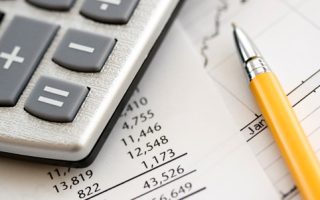The Change and How We React to It
The world has ever been on the change. Human civilization has come to this culmination point by dint of their power to invent, improve, and change old ways to newer lifestyles. The interesting thing is how different people react to change. Some people plan, design, and make the change happen while others predict the change and get affiliated with the right people. Others see the change happen and simply accept it.
Most of the time, we don’t have the power to change things, but we can be a part of the ones who are changing things. That makes a lot of difference, and that’s what we’re going to tell you in detail.
Transportation as a Service
Along with personal vehicles, there grew a whole industry of transportation services that include:
- Airlines that transport passengers by air
- Airfreight companies that fly cargo
- Railroads that transport passengers and freight by train
- Trucking companies that transport goods by road
- Marine shipping companies that transport products by sea
- Logistics companies that combine an array of modes of transportation to move things quickly and efficiently
- There are also some service providers that help other companies with all of the above modes of transportation, such as marine ports, airport operators, and private toll-road companies.
The Problems
Since the invention of motor vehicles, people around the world have shown a never-failing interest in buying themselves the car, a motorcycle, or another form of vehicle. The basic idea was that owning a car saves a lot of time and complexities of buying tickets, standing in lines, and traveling through limited routes. When you have a car, you can go anywhere and take any non-private road.
However, now, the whole concept is debatable.
People are starting to look at having your own car negatively because of the number of hassles they have to face due to the modern infrastructure of urban life, especially roads and highways. People are getting more and more aware as to the cost they’re having to pay just to own a car.
These are the following factors that have compelled the car owners to reconsider their ownership:
- The buying and financing of vehicles
- Maintenance, which does not only include regular or periodic maintenance but also the ones that come as a result of accidents.
- Gas
- Insurance
- Traffic
- Actual driving: This is a hidden problem that so many drivers don’t like to share. Many people are not just comfortable with driving. Another very serious issue is the factors that very often distract the attention of the drivers like texting and checking emails, to name a few. Anyone can see how dangerous this is for drivers, pedestrians, and others who are using the streets.
Using public transportation, on the other hand, makes them able to remain connected while en route to their workplaces safely in a way that improves their productivity and contributes to the safety of everyone.
- (sometimes) Finding and paying for storage: This is an issue that’s getting incredibly painful in places where parking areas are shrinking.
All the factors, if summed up, clearly show that owning a car or personal vehicle is much more expensive and troublesome than the apparent gratification we feel when we have them.
That’s why expert Whitney Tilson’s prediction: TaaS is better than 5G.
The Changing Trend
Manny Rin, a former CALPIRG student volunteer, remembers how the dream of his grandmother of having a car has changed in him:
“I remember talking to her as a young child and what that vision actually was for her, and a big part of it was owning a home and also another part of that was owning a car.” But he didn’t think that way. He adds, “That wasn’t actually the sort of vision that I had in my own life. I actually didn’t get my license when I was 18, and now, as an adult, I still don’t have a car and rely more heavily on trains, buses, and other public transportations.”
The same notion was echoed by Sarah Dobjensky, the WISPIRG campus organizer (2010-2014), Jan Kim, the CALPIRG organizer (2006-2010), and others in an interview taken by US PIRG education fund. Everyone expressed the same thing: Life without their own car and choosing public transportation has made their lives more comfortable and carefree.
The Plan and Organizations
Tony Dutzik, a senior policy analyst in Frontier Group, once said that there are a number of initiatives taken for this purpose. The mission is to contribute information and ideas to help build a cleaner, fairer, and healthier environment, and their role is to work with non-profit organizations such as US PIRG and US PIRG education fund to provide that data and ideas to support the work they are doing on a whole host of issues. In terms of transportation, they advocate for a cleaner, more diverse, and more sustainable system of transportation.
The advocators are clearly explaining that when we drive less, there are a whole host of benefits that accrue not just to us but also the society at large. Fewer cars mean producing less pollution that contributes to global warming and harms the health of people. The economic benefit is that when people drive less, it frees them from the costs of maintaining and fueling their vehicles.
Another significant issue to be considered is the national security benefit. All of the countries that provide their population with the facility of fuel-powered vehicles grow a kind of dependability on oil, and when we drive less and use other modes of transportation more, we’re reducing that dependence and some of the national security challenges that come with it.
What’s the Big Picture?
The above data, interview, and research clearly conclude that the world is going to see a drastic change in the use of transportation systems. People are tending more to public transport than personally owned vehicles.
The infrastructures are also getting remodeled to support a cheap, fast, and risk-free network of transport systems.
The future world is going to see the ultimate uptrend in the transportation sector, and anyone inclined to invest here will see a thrive in their capital and gradual increase of wealth.






